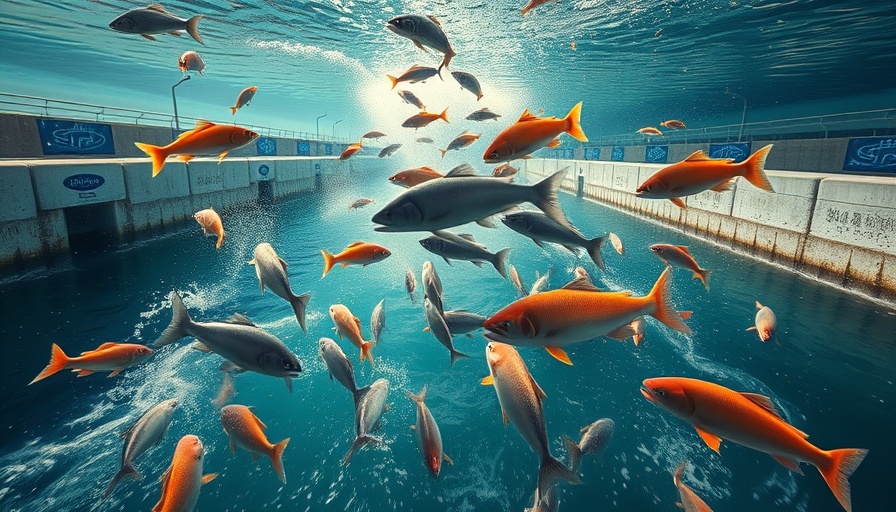
Recognizing the Importance of Evolution in Aquaculture
As the global demand for food continues to rise, innovative solutions in fisheries management are imperative. A new book, Conservation Aquaculture: An Evolution-based Approach for the Production of Fish for Aquaculture-assisted Fisheries Programs, authored by Douglas Tave, aims to reshape our understanding of how conservation aquaculture can be approached by focusing on the evolutionary factors that enhance fish sustainability in wild habitats. Tave, with extensive experience managing hatchery operations dedicated to endangered species recovery, presents a compelling argument: hatchery fish need not just be bred for survival in controlled environments but rather for adaptability in wild ecosystems.
Why Is This Shift Necessary?
The traditional practices in fish culture have produced healthy fish suitable for hatcheries, but these fish often struggle when confronted with the complexities of natural environments. The implications are severe: restoration programs suffer from limited success when hatchery fish fail to thrive after being stocked. Tave's book emphasizes that a focus on evolutionary traits can bridge this gap, producing fish that not only survive but also contribute positively to their ecosystems.
Accessible Knowledge for Better Practices
Tave's insights extend far beyond scientists or specialized hatchery operators; this book is a resource for anyone interested in the future of fish conservation. It empowers managers and non-experts alike to participate actively in conservation programs, making the knowledge accessible and actionable. The principles explored in the book can enhance not just endangered species recovery efforts, but all fish augmentation initiatives. This holistic view is especially relevant in today's climate of declining fish populations and habitat loss.
The Future of Aquaculture and Conservation
The urgency of rethinking conservation aquaculture strategies is echoed by recent funding infusions into research aimed at improving fish health and disease resistance, demonstrating a shifting paradigm towards sustainable practices in the industry. By harnessing evolutionary strategies, the future of conservation aquaculture may well lean towards methods that enhance both farm and wild populations, ensuring healthier ecosystems overall.
Those in the aquaculture field—particularly professionals involved in hatchery management or conservation efforts—should consider how adopting and adapting Tave's principles can promote not only compliance and efficiency but also a pioneering role in sustainability.
 Add Row
Add Row  Add Element
Add Element 



 Add Row
Add Row  Add
Add 
Write A Comment